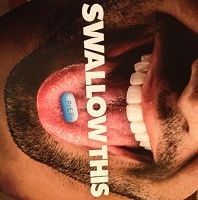Cities Roll Out PrEP Programs
WIth high rates of HIV infection among black and Latino men who have sex with men, a dozen cities in the US have started trial programs aimed at getting HIV negative MSM to embrace pre-exposure prophylaxis, both "holistic" and pharmaceutical.

With new antiviral drugs available to prevent HIV infection--and more in the pipeline--the US Centers for Disease Control and Prevention (CDC) and other government entities and non-profit organizations are launching pilot projects to get at-risk people to take these pre-exposure prophylactics.
"We're scaling up," said the CDC's Karen Hoover, MD, MPH.
"Most people using PrEP are white men, of course, and it is black and Hispanic men who are at high risk--we havent been as successful with them," she said.
Working with Gilead ,the maker of tenofovir ( Truvada), and various state and local government agencies and non-profit organizations, the CDC is assisting in setting up two large programs, one called THRIVE and another called PRIDE.
This morning at the 20th annual United States Conference on AIDS in Hollywood,FL, Hoover was joined by directors of programs in Philadelphia and New York City who explained how they work.
Together the programs are targeting men who have sex with men (MSM) and transgender women..
Four of the programs, in Baltimore, Louisiana, New York City and Virginia are grantees in both PRIDE and THRIVE.
Using $66 million in funding, the programs are building on the success of community based organizations that use peer counselors to get people at risk into HIV testing and counseling. THRIVE and PRIDE are taking outreach to the next level by getting at-risk people into medical programs where they can get prescriptions for PrEP drugs
In Philadelphia, program director Derrick William spoke about CLUB 1509, an acronym that stands for " Community Linkages for Urban Brothas," he said.
There is much at stake: black MSM have about a 50% risk of contracting the HIV virus in their lifetimes and Latino men about a 25% risk.
"It doesn't have to happen," William said.
Linking people to medical care for PrEP, as well as reinforcing safe sex practices, is the key to ending the epidemic, he said.
"To make it work youhave to have professional teams, not just peer based [counseling]," he said. .
But this is a population with many problems: lack of health coverage, unemployment or underemployment, and often histories of being homeless.
On top of that, there is mistrust, and resistance to taking a medication when they are not ill.
In session in which the audience asked questions the first that came up was from an outreach counselor who asked "How do you get around the social hurdle in the belief that PrEP is toxic?
William said the best approach is straight talk, speaking about whatever risks or side effects are known.
"It's all new but talk about what we do know about Truvada," he said. The therapy is so recent that many people have not heard of it, he added. One confusion is that they may think of "PrEP" as the trade name for Truvada, he said.
Ads like one (above left) used by Harlem United, an AIDS outreach group in NYC, might be adding to the confusion, he said, since it's got PrEP written on the blue pill, but that's a minor point, he said. (The photos are on cardboard fans being given away at the meeting. )
Another audience member criticized the marketing of PrEP as focusing on gay male couples, which could be a negative for men who though they have sex with men consider themselves straight.
Wilson replied that in community outreach it is important not to ask whether a person identifies as straight or gay but just to ask about what specific sex practices they engage in.
Hoover stressed that it is important to tell clients what is known about tenofovir.
The drug appears very safe, she said, andt new drugs are coming that may have even less risk.
Meanwhile, anyone on pharmaceutical PrEP should see a physician every three months and be monitored to see that kidney function is ok.